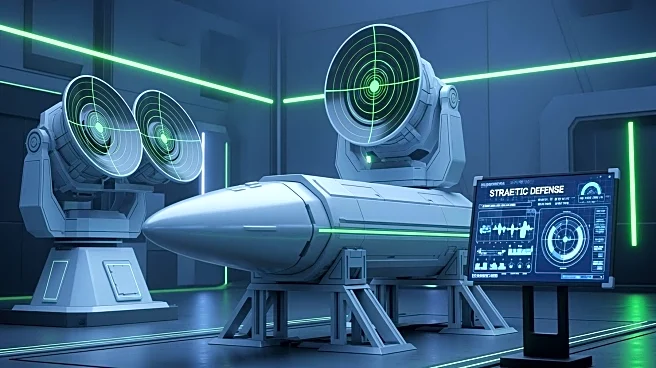What's Happening?
The US Army has awarded Lockheed Martin a contract for prototyping a second interceptor for the Indirect Fire Protection Capability Increment 2 (IFPC Inc 2). This contract, known as an other transaction authority (OTA), involves a 10-month trade study
phase where Lockheed Martin will collaborate with AV, a merger of AeroVironment and BlueHalo, to provide missile technology expertise. The IFPC program aims to bridge the gap between short-range air-defense systems and the Patriot air and missile defense system. The original interceptor selected for IFPC Inc 2 was Raytheon's AIM-9X Sidewinder, but the Army sought a weapon more suited for subsonic and supersonic cruise missiles. Boeing and Rafael have expressed anticipation for an OTA, although they have not yet been awarded one.
Why It's Important?
The development of a second interceptor for the IFPC program is crucial for enhancing the US Army's air and missile defense capabilities. By addressing the gap between existing short-range systems and the Patriot system, the Army aims to improve its defense against a wider range of threats, including subsonic and supersonic cruise missiles. This advancement is significant for national security, as it strengthens the military's ability to protect against evolving threats. Lockheed Martin's involvement in the program highlights the importance of collaboration between defense contractors to achieve technological advancements in missile defense.
What's Next?
As the contract progresses, Lockheed Martin and AV will conduct a 10-month trade study phase to develop the second interceptor. The Army's decision to award the OTA to Lockheed Martin indicates a commitment to advancing the IFPC program. Boeing and Rafael, while not yet awarded an OTA, may continue to pursue involvement in the program. The successful development and integration of the second interceptor could lead to further contracts and collaborations within the defense industry, potentially influencing future military procurement strategies.
Beyond the Headlines
The IFPC program's focus on bridging the gap between short-range and Patriot systems reflects broader trends in military defense strategies, emphasizing the need for adaptable and integrated solutions. The collaboration between major defense contractors like Lockheed Martin, AV, Boeing, and Rafael underscores the importance of industry partnerships in achieving technological advancements. This development may also influence international defense collaborations, as countries seek to enhance their missile defense capabilities in response to global security challenges.















